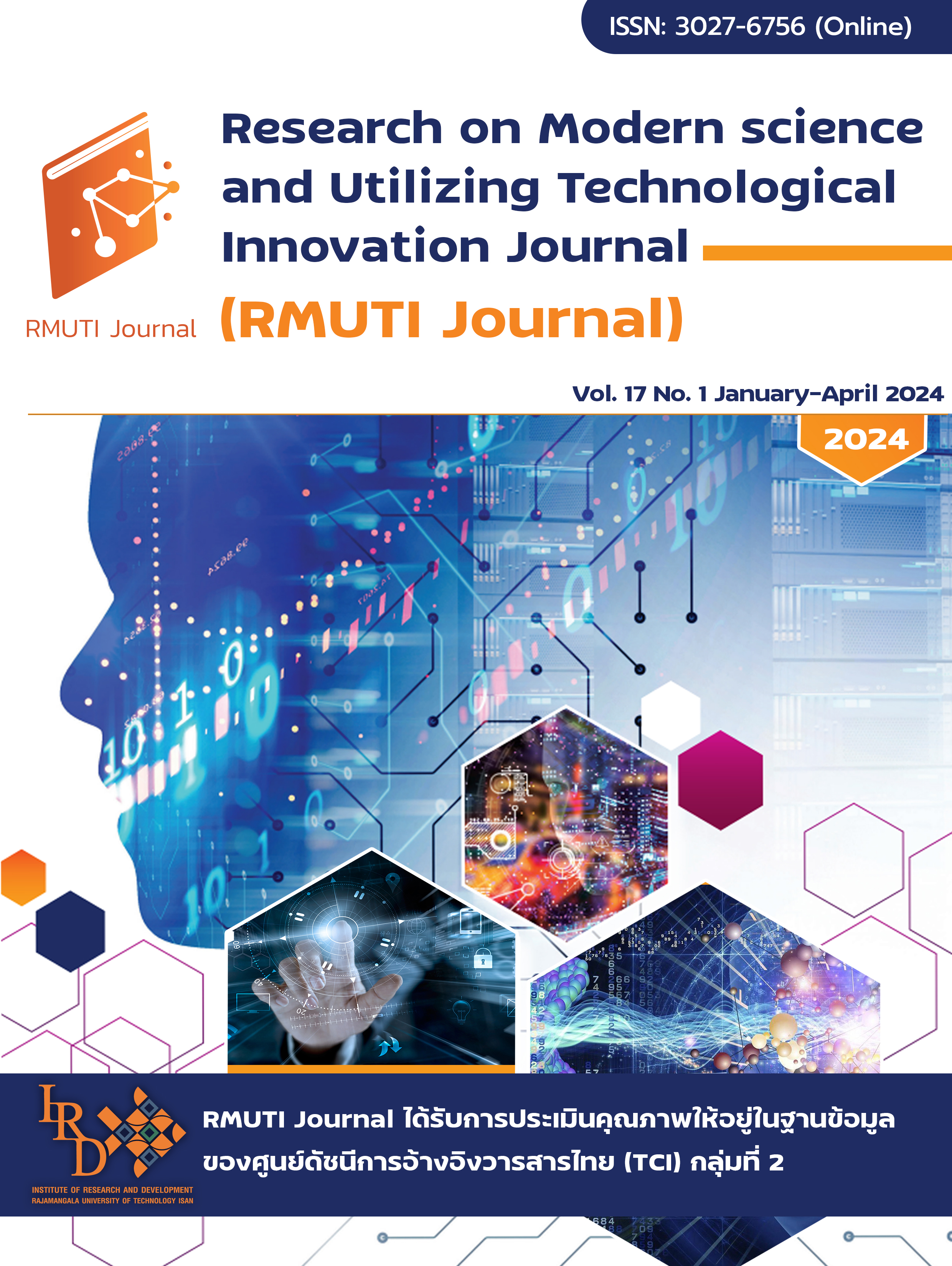The Factors in Rail Transportation Service Considering User Expectation Toward New Normal and Sustainability: Case study Northeastern lines
Main Article Content
Abstract
The development of infrastructure and Thailand's transportation is a sustainable development country goal which consists of transportation management development such as transportation management system and service form, Infrastructure such as roads, transport stations, and railway routes. Railway transportation is a main issue in the success of transportation services. And all over the lifestyle has changed. Therefore, this research aims to study the services quality factors of Northeastern lines. The research instrument was a questionnaire. The researcher collected data from a sample group for 600 people and used second-order factor analysis. The result showed that the service quality is measured by vehicle characteristics, services, information, crews and terminal at a statistically significant level 0.01. Therefore, service providers should prepare the information of travel on vehicle and stations, provide the security guard in station, manage getting on and off trains at platform and clean the station regularly.
Article Details

This work is licensed under a Creative Commons Attribution-NonCommercial-NoDerivatives 4.0 International License.
References
Anantapak, V. (2011). A Study of Travelers’ Attitudes Towards Public Transport Service: A Case Study of Amnatcharoen. M. Eng. Institute of Engineering. Suranaree University of Technology
Pornpanuwich, C. (1997). People's Expectations Regarding the Role of Officials in Managing Local Natural Resources: Case Study of Phrae Province. M. A. Faculty of Environment and Resource Studies. Mahidol University
Fenton, P. (2017). Sustainable Mobility in the Low Carbon City: Digging Up the Highway in Odense, Denmark. Sustainable Cities and Society. Vol. 29, pp. 203-210. DOI: 10.1016/j.scs.2016.11.006
Wiratchai, N. (1999). Lisrel Model: Analytical Statistics for Research. Bangkok. Chulalongkorn University Press
Likert, R. (1932). A Technique for the Measurement of Attitudes. Archives of Psychology
Kanchanawasri, S. (2009). Traditional Testing Theory. Bangkok, Chulalongkorn University Press
Prentice, P. and Publishing, H. (2010). Advanced Diagnostics for Multiple Regression: a Supplement to Multivariate Data Analysis Multivariate Data Analysis. Computer Science, Mathematics
Lee, S. C., Tsai, C. H., Lin, Y. C., Li, H. J., Jiang, D. R., Fu, I. N., and Chen, K. L. (2021). Factorial Validity of the Theory of Mind Inventory‐2 in Children with Autism Spectrum Disorder. Autism Research. Vol. 14, No. 11, pp. 2424-2431. DOI: 10.1002/aur.2581
Bollen, K. A. and Long, J. S. (1993). Testing Structural Equation Models. Sage Publications, Inc.
Pavlov, G., Shi, D., and Maydeu-Olivares, A. (2020). How to Use Item Desirability Ratings in Constructing Forced-Choice Tests [Poster]. Society for Industrial and Organizational Psychology Annual Conference, Austin, TX, United States
Kline, R. B. (2004). Beyond Significance Testing: Reforming Data Analysis Methods in Behavioral Research. American Psychological Association. DOI: 10.1037/10693-000
Hair, J. F., Gabriel, M., and Patel, V. (2014). AMOS Covariance-Based Structural Equation Modeling (CB-SEM): Guidelines on its Application as a Marketing Research Tool. Brazilian Journal of Marketing. Vol. 13, No. 2. DOI:10.5585/remark.v13i2.2718
Lee, W. -H., Yen, L. -H., and Chou, C.-M. (2016). A Delay Root Cause Discovery and Timetable Adjustment Model for Enhancing the Punctuality of Railway Services. Transportation Research Part C: Emerging Technologies. Vol. 73, pp. 49-64. DOI: 10.1016/j.trc.2016.10.009
Losada-Rojas, L. L., Gkartzonikas, C., Pyrialakou, V. D., and Gkritza, K. (2019). Exploring Intercity Passengers’ Attitudes and Loyalty to Intercity Passenger Rail: Evidence from an On-Board Survey. Transport Policy. No. 73, pp. 71-83. DOI: 10.1016/j.tranpol.2018.10.011
Wonglakorn, N., Ratanavaraha, V., and Karoonsoontawong, A., and Jomnonkwao, S. (2021). Exploring Passenger Loyalty and Related Factors for Urban Railways in Thailand. Sustainability. Vol. 13, Issue 10, Article 5517. DOI: 10.3390/su13105517
Wonglakorn, N., Chantaratang, A., Suksiripattanapong, C., Na Sritha, K., Aunphoklang, W., Ninjinda, N., and Keerakittisakul, W. (2023). The Development of Service Metrics Indicators of a Public Transportation Service Case Study: Intercity Trains in Nakhon Ratchasima Province, Thailand. Sustainability. Vol. 15, Issue 15, Article 11739. DOI: 10.3390/su151511739
Farazi, N. P., Murshed, M. N., and Hadiuzzaman, M. (2022). Application of Machine Learning to Investigate Heterogeneity in Users’ Perception of Intercity Train Service Quality in Developing Countries. Case Studies on Transport Policy. Vol. 10, No. 1, pp. 227-238. DOI:10.1016/j.cstp.2021.12.004
Ibrahim, A. N. H., Borhan, M. N., Md Yusoff, N. I., and Ismail, A. (2020). Rail-Based Public Transport Service Quality and User Satisfaction - A Literature Review. Promet-Traffic & Transportation. Vol. 32, No. 3, pp. 423-435. DOI: 10.7307/ptt.v32i3.3270


